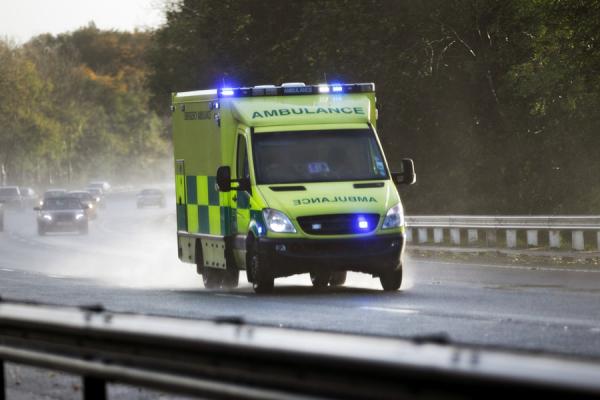No to raised ambulance response times

GMB is seeking assurances from NHS ambulance trusts of no further raising of response times targets following avoidable deaths on the south coast.
Ambulance services should be properly funded and properly staffed to meet the needs of the population says GMB
GMB, the union for ambulance staff, commented on the news that Paul Sutton, CEO of the South East Coast Ambulance trust (SECAmb), has been placed on paid leave. (See notes for copy of Times article)
Charles Harrity, GMB Senior Organiser, said “Ambulance services across the country have been facing financial pressures and have had to deal with problems like high turnover of staff, all of which have added up to problems meeting the response times targets.
GMB has consistently warned the government and Ambulance trusts that decreased funding would dramatically impact on response times and patient safety, with the potential for loss of life.
GMB want a categorical assurance from SECAmb NHS Trust and from trusts all over the UK that there will be no further cuts in funding or reduction in staff numbers operating over a 24 hour period, which has led to this response time crisis. Instead GMB want to see an ambulance service properly funded and properly staffed to meet the needs of the population and to ensure patient safety is maintained at all times regardless of the patients initial point of contact, such as the 111 service.”
end
Contact:
Charles Harrity, GMB Senior Organiser 07977 518042; Rachel Verdin
GMB Organiser 07931 796733; GMB press office on 07970 863411 or 07739 182691
Notes to Editors
1 Times article, 16 March 2016, Chris Smyth, Health Editor
Boss imposed ambulance delay policy to meet targets
Ambulances called to life-threatening emergencies were deliberately delayed under a high-risk policy forced through by a senior NHS boss, an official inquiry has concluded.
Paul Sutton, chief executive of the South East Coast Ambulance Service, has been placed on paid leave after an inquiry blamed him for insisting on changes that meant patients had to wait up to twice as long if they called the NHS 111 helpline rather than 999.
Eleven deaths have been linked to the 26,000 calls affected by the policy, introduced by Mr Sutton despite the misgivings of senior staff, the inquiry found. By “stopping the clock” on calls referred via 111, the trust was able to claim that it was meeting NHS response targets when it was not.
The report identified fundamental failings in governance at the organisation, which covers Sussex, Surrey, Kent and parts of Hampshire, that allowed Mr Sutton to implement the policy without a clinical assessment and without his board or other health chiefs realising the implications.
Tony Thorne, chairman of the trust, has resigned and the organisation said in a statement that it accepted its handling of the policy was inadequate. Mr Sutton is on a mutually agreed leave of absence from his £160,000-a-year job while a new chairman decides how to respond.
Peter Walsh, chief executive of the charity Action against Medical Accidents, said that the report, published yesterday, “reveals a complete disregard for good governance and worst of all, patient safety”. He added: “It should not be possible in a modern NHS for a scandal of this nature to happen.”
The inquiry, by Deloitte, found that there was widespread frustration in the ambulance service over how often NHS 111 decided to send an ambulance for minor problems. The helpline has been criticised because call handlers with no medical qualifications rely on a risk-averse computer programme to advise patients.
In response, the trust decided to reassess ambulance call-outs that came through 111, in defiance of NHS England guidance. So-called Red 2 calls, for life-threatening situations such as stroke where patients are still breathing, were put in a separate triage queue for up to ten minutes before an ambulance was dispatched.
The trust said that no clear indications of patient harm had been identified. A separate review looking at this will conclude by June.



